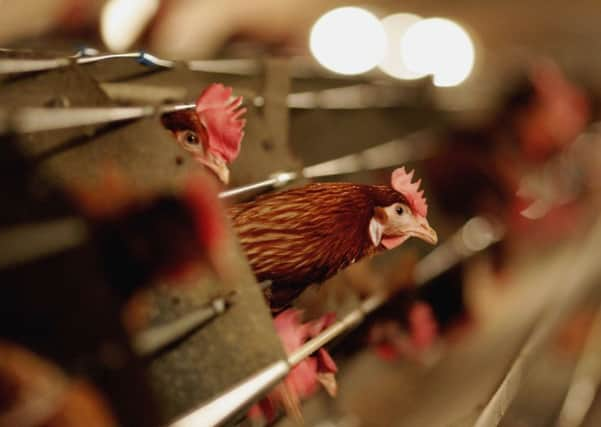Warning over risk of new strain of avian influenza
This article contains affiliate links. We may earn a small commission on items purchased through this article, but that does not affect our editorial judgement.


Ian Brown, head of virology at of the UK’s Animal and Plant Health Agency (APHA), told the World Veterinary Poultry Association conference that there was a likelihood that avian flu would return to Europe over the next few months.
• READ MORE: Farming news
And if the strain was different to one we had seen before – which was possible – it could have significant implications on the poultry industry, he warned.
Advertisement
Hide AdAdvertisement
Hide AdBrown said while the situation was currently uncertain, it was important poultry keepers were prepared against a potential biosecurity risk.
“Even if the virus is changing, the way it behaves and spreads remains the same, so the pathways in which it gets into a unit are not any different,” said Brown, who is also director of the international reference laboratory for avian influenza at APHA-Weybridge.
“At this time of year, producers need to review their biosecurity and work as a group in the industry to set protocols.They need to be fastidious, as one case can cause the whole sector to suffer.”
Brown said practices such as compartmentalisation – where business or multiple farms can adopt common biosecurity measures to standardise their approach to protecting bird health – could be beneficial.
However, relatively simple measures such as ensuring buildings are in a good state and feed bedding and equipment is stored away from areas wild birds can access were just as important.
“The challenge for the industry is to look at the risks we know,” he said. “The riskiest period is September to April, so we need to think about how we can sustain that biosecurity.”
Advertisement
Hide AdAdvertisement
Hide AdScotland’s chief veterinary officer Sheila Voas said it was important producers remembered the risk of bird flu from wild birds, and urged bird keepers to reduce contact with wild birds in ponds and other water areas.
“As winter migration season approaches, all bird keepers should be enhancing their disease prevention measures in response to any increase in risk and are encouraged to keep up to date with the latest situation by signing up for the APHA free text alerts service,” she added.
“I would also strongly encourage both commercial and hobby bird keepers to be prepared and use this time to reassess and update their contingency plans, in consultation with private vets or the APHA.”
New code may end uncertainty for limited partnership tenants
While there may only be just over 500 farming businesses still involved in limited partnership agreements, the publication of a code of practice for planning the future of those involved in such arrangements yesterday will directly address one of the areas of greatest contention between landlords and tenants.
Limited partnership tenancies were used as a means of circumventing security of tenure throughout the latter decades of the 20th century until changes to the holdings legislation introduced limited duration leases in 2003.
However, with the majority of these agreements now approaching their dissolution date, many limited partnership tenants have found themselves facing an uncertain future, with what effectively constitutes their lease coming to an end in what might be considered the middle of their farming careers.
• READ MORE: New code launched as farming tenant amnesty opens
Advertisement
Hide AdAdvertisement
Hide AdWhile some landlords have rolled leases over to time-limited agreements which will last until the tenant retires, other high-profile cases have led to years of contention and legal wrangling, with the Scottish Government’s intervention during the early years of the new legislation leading to further problems and lengthy appeals.
However, the new code of practice, drawn up by tenant farming commissioner Dr Bob McIntosh, is designed to take some of the uncertainty out of the issue and provide a framework for both sides to work together towards a satisfactory deal.
“It is important that discussions take place with plenty of time for both parties involved to discuss their aspirations before a final decision is agreed to the future of the partnership,” said McIntosh.